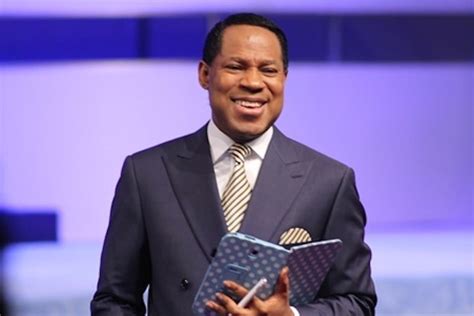A Quote by Martin Luther
Where faith is not continually kept in motion and exercised, it weakens and decreases, so that it must indeed vanish; and yet we do not see nor feel this weakness ourselves, except in times of need and temptation, when unbelief rages too strongly; and yet for that very reason faith must have temptations in which it may battle and grow.
Related Quotes
Faith, to be faith, must center around something that is not known. Faith, to be faith, must go beyond that for which there is confirming evidence. Faith, to be faith, must go into the unknown. Faith, to be faith, must walk to the edge of the light, and then a few steps into the darkness. If everything has to be known, if everything has to be explained, if everything has to be certified, then there is no need for faith. Indeed, there is no room for it.
So let's set the record straight. Faith is not the opposite of reason. The opposite of faith is unbelief. And reason is not the opposite of faith. The opposite of reason is irrationality. Do some Christians have irrational faith? Sure. Do some skeptics have unreasonable unbelief? You bet. It works both ways.
We cannot think too highly of our nature, nor too humbly of ourselves. When we see the martyr to virtue, subject as he is to the infirmities of a man, yet suffering the tortures of a demon, and bearing them with the magnanimity of a God, do we not behold a heroism that angels may indeed surpass, but which they cannot imitate, and must admire.
May I make two citations from the words of a discerning editorial writer, not one of my faith, but one of much faith: "If we neglect the divine . . . and give ourselves over wholly to the human," he said, "we may certainly count upon nothing but the triumph of pessimism. . . . True optimism must rest upon a calm, unshakable faith in eternal life and in the unlimited goodness of him who gives it."
Faith is not an art. Faith is not an achievement. Faith is not a good work of which some may boast while others can excuse themselves with a shrug of the shoulders for not being capable of it. It is a decisive insight of faith itself that all of us are incapable of faith in ourselves, whether we think of its preparation, beginning, continuation, or completion.
So for us, the condition and preparation on and by which we are sheltered by that great hand, is the faith that asks, and the asking of faith. We must forsake the earthly props, but we must also believingly desire to be upheld by the heavenly arms. We make God responsible for our safety when we abandon other defense, and commit ourselves to Him.
If we would be sanctified, our course is clear and plain—we must begin with Christ. We must go to him as sinners, with no plea but that of utter need, and cast our souls on him by faith, for peace and reconciliation with God.... If we would grow in holiness and become more sanctified, we must continually go on as we began, and be ever making fresh applications to Christ.







































